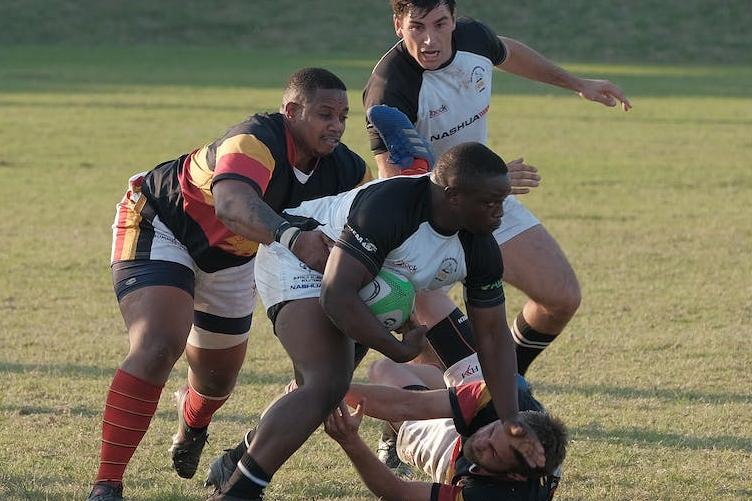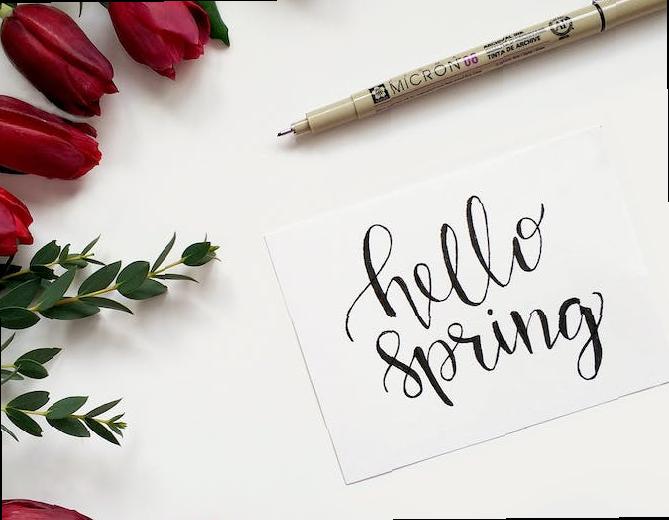
Exploring Payment Options At Top Non Gamstop Uk Casinos
When it comes to online gambling, players often seek out the best possible options that…


The process of obtaining a gambling permit for nonprofit entities in Minnesota can be quite intricate and daunting. Nonprofit organizations that wish to offer charitable gambling activities such as pull-tabs, bingo, and meat raffles need to complete an extensive application process before they can be granted a permit.
The Minnesota Gambling Control Board (GCB) is responsible for regulating and issuing permits for nonprofit organizations wishing to participate in charitable gambling. The GCB ensures that nonprofit organizations comply with all statutory and regulatory requirements, including the use of proceeds from gambling activities for lawful purposes.

The application process for a gambling permit in Minnesota requires the submission of various documents and requirements. These include a completed application form, plan of operations, financial statements, and a background check for each member involved in the gambling activity. Additionally, the nonprofit must demonstrate that it has obtained the necessary licenses and permits from other relevant authorities, such as the Minnesota Department of Revenue and the Minnesota Secretary of State.
Once a nonprofit organization has successfully completed the application process, it is subject to inspections, audits, and reporting requirements from the GCB. These measures are in place to ensure the integrity and accountability of charitable gambling in Minnesota.
In summary, the process of obtaining a gambling permit for nonprofit entities in Minnesota is a rigorous and detailed process. Nonprofit organizations must comply with strict regulations and requirements before they can be granted a permit. However, the rigor of the process helps to ensure that the money generated from charitable gambling activities is used in a responsible and effective manner.
In Minnesota, nonprofit organizations that wish to obtain a gambling permit must meet the requirement of nonprofit status. This means that the organization must be created and operated solely for charitable, religious, educational, or civic purposes, and must not distribute any profits to its members, officers, or directors.
Nonprofit status is important for organizations seeking a gambling permit because it ensures that any funds raised through gambling activities will be used for legitimate charitable purposes. It also helps prevent fraud and abuse in the gambling industry, as for-profit companies may have a greater incentive to prioritize profits over the interests of charitable causes.
If you’re searching for hidden gem locations to explore, consider staying at affordable non-casino hotels for a more authentic experience.
In Minnesota, nonprofit entities seeking a gambling permit must fulfill certain eligibility criteria. First, the nonprofit must be organized and operated solely for religious, charitable, fraternal, educational, or other specified purposes. Second, it must have been in existence for at least three years, and during that time, it must have engaged in activities consistent with its purpose. Third, it must demonstrate that it has a stable financial condition and that its gambling activities will not become the primary focus of its operations. Fourth, the nonprofit must not have the appearance of being a mere cover for activities that would otherwise be illegal. Finally, the nonprofit must agree to comply with all state laws and regulations related to gambling permits, including filing regular reports with the Minnesota Gambling Control Board.
It is important for nonprofits to meet these eligibility criteria before being issued gambling permits, as it ensures that the proceeds from gambling activities are being used for their intended purpose. Discover the excitement of playing at fast payout online casinos offering a wide selection of games.
In Minnesota, there are several types of gambling permits available for nonprofit entities. Firstly, there is the traditional raffle permit, which allows nonprofits to conduct a raffle with a maximum prize limit of $10,000. Secondly, there is the Bingo permit, which allows nonprofits to conduct bingo games where the prize payout is not more than $200 per game. Thirdly, there is the Lawful Gambling Exempt (LGE) permit, which allows nonprofits to conduct “tip boards,” pull-tabs, paddle wheels, and other similar games with a prize payout not exceeding $200.
In addition to these permits, there is also the Lawful Gambling License (LGL) which allows nonprofits to conduct any lawful gambling activity, such as electronic pull-tabs, linked bingo games, and sports-themed tip boards. Nonprofits must meet specific requirements to obtain an LGL, such as being in operation for at least one year, having a minimum amount of net assets, and having a specified amount of gross receipts in the previous year.
Finally, there is also the option for nonprofits to obtain a permit for charitable gambling events, which allows them to conduct multiple forms of gambling on the same premises. These events must be approved by the Minnesota Gambling Control Board and can have a maximum of one event per permit.
Overall, these various types of permits provide nonprofit entities in Minnesota with the opportunity to legally raise funds through gambling activities, allowing them to support their charitable causes and make an impact in their communities.
The application process for permits for gambling permits for nonprofit entities in Minnesota requires several steps. First, the nonprofit entity must identify the type of permit they need, such as a raffle permit or a bingo permit. Second, they must complete the appropriate application form and submit it to the Minnesota Gambling Control Board. This application form will require detailed information about the nonprofit entity, including their tax ID number and the purpose of the gambling activity. Third, the nonprofit entity must pay the appropriate fees associated with the permit application. These fees vary depending on the type and duration of the permit. Lastly, the nonprofit must pass a background check conducted by the Minnesota Gambling Control Board. This is to ensure that the nonprofit has a clean criminal history and is not associated with any illegal gambling activity.
If you are looking for Poker bonuses, you can find some amazing deals on non gamstop poker sites PayPal.
Nonprofit entities seeking gambling permits in Minnesota are required to submit a range of supporting documents to the relevant regulatory body. These documents are designed to demonstrate that the organization meets the necessary requirements to be granted a permit to conduct gambling activities.
In addition to completed application forms, nonprofit entities must submit various financial documents, including audited financial statements from the past three years, a current statement of assets, liabilities, and fund balances, and a copy of their most recent Form 990, which details their revenue and expenses.
Nonprofit entities must also provide evidence of their legal status, including a copy of their articles of incorporation or a certificate of incorporation, as well as proof of any relevant tax-exempt status.
Finally, nonprofit entities must submit a range of documents that relate specifically to their proposed gambling activities. This may include copies of contracts with vendors, proof of liability insurance, and proposed budgets for each gambling event.
By submitting these required supporting documents, nonprofit entities can ensure that they meet the necessary criteria to be granted a gambling permit in Minnesota, allowing them to conduct fundraising activities and support their charitable causes.
Nonprofit entities in Minnesota are required to obtain a gambling permit in order to conduct lawful gambling activities. However, such permits come with certain fees that must be paid by the nonprofit organization they are issued to. The fees associated with gambling permits depend on the type of permit and the type of gambling activity being conducted.
For instance, the initial application fee for an exempt permit, which allows an organization to conduct limited, occasional gambling activities, is $100. For a regular permit, which allows an organization to conduct continuous gambling activities, the initial application fee is $200.
Moreover, once a permit is issued, the nonprofit entity is required to pay an annual renewal fee to maintain its permit. For an exempt permit, the renewal fee is $25, while for a regular permit, it is $50. Additionally, there might be additional fees for each gambling activity conducted by the nonprofit entity, such as a fee for each bingo game or pull-tab game.
Nonetheless, it is worth noting that gambling permit fees in Minnesota are subject to change, depending on the state legislature’s decision. Therefore, it is imperative for nonprofit entities to keep themselves updated on current fees and regulations to ensure compliance with Minnesota gambling laws.
Gambling permits for nonprofit entities in Minnesota have a specific duration that is set by the regulatory authorities. According to Minnesota state laws, the duration of gambling permits can be either annual or monthly periods. An annual permit allows nonprofit organizations to conduct charitable gambling activities for a period of one year while a monthly permit allows them to operate for a shorter period of thirty days.
The duration of a gambling permit can vary depending on the type of charitable gambling activity being offered. For example, pull-tab games and electronic-linked bingo can only be conducted with a monthly permit while paper pull-tab games and paddlewheels can be operated with either an annual or monthly permit.
Nonprofit organizations must ensure that they submit their permit applications well in advance of the desired start date of their charitable gambling activities. They should also renew their permits before they expire to ensure that there is no interruption in their operations.
In conclusion, the duration of gambling permits for nonprofit entities in Minnesota is an important aspect of their charitable gambling activities. The laws governing permit duration must be strictly adhered to by nonprofit organizations to avoid legal repercussions.
To renew a gambling permit for nonprofit entities in Minnesota, follow the steps below:
1. Complete and submit the renewal application before the expiration date.
2. Ensure all required documents are attached to the renewal application.
3. Pay the renewal fee when submitting the application.
4. Wait for the Gambling Control Board to process the renewal application and issue the renewed permit.
Once the permit is renewed, nonprofit entities can continue to operate their gambling activities within the state of Minnesota legally.
When it comes to top live casino providers, players can now enjoy a seamless gaming experience with no self-exclusion at live casino.
Nonprofit entities in Minnesota that hold gambling permits have reporting and record-keeping responsibilities to ensure compliance with state laws and regulations. These responsibilities include:
1. Keeping accurate financial records of all gambling activity, including receipts, expenses, and payouts.
2. Reporting all gambling revenue and expenses to the Minnesota Department of Revenue on a quarterly basis using the appropriate forms.
3. Submitting annual audit reports to the Minnesota Gambling Control Board as required by law.
4. Keeping detailed records of all charitable contributions made from gambling revenue and ensuring that at least 20% of gambling proceeds are donated to charitable causes.
5. Maintaining proper documentation of all vendor contracts and agreements related to gambling operations.
6. Ensuring that all required permits and licenses are up-to-date and readily available for inspection.
Nonprofit entities that fail to comply with these reporting and record-keeping responsibilities may face penalties or have their gambling permits revoked. Therefore, it is essential for nonprofit entities to be diligent in their record-keeping and reporting practices to maintain compliance with state laws and regulations.
Nonprofit entities in Minnesota must comply with all state regulations regarding gambling permits. Failure to comply with these regulations may result in consequences for noncompliance. The consequences for noncompliance can be severe and may include fines and penalties, revocation or suspension of the nonprofit’s gambling permit, and legal action.
In Minnesota, the Department of Public Safety Alcohol and Gambling Enforcement Division is responsible for regulating the gambling activities of nonprofit entities. The department has the power to investigate nonprofit entities that are suspected of noncompliance with state regulations. If a nonprofit is found to be in violation of these regulations, the department may impose a fine or penalty. The amount of the fine or penalty will depend on the severity of the violation.
In addition to fines and penalties, a nonprofit entity that fails to comply with state regulations may have its gambling permit revoked or suspended. Revocation or suspension of the permit will prevent the nonprofit from conducting any gambling-related activities until it has complied with all state regulations.
Finally, noncompliance with gambling regulations may result in legal action against the nonprofit entity. This could include civil lawsuits, criminal charges, or both. Legal action can result in significant financial and reputational damage to a nonprofit entity. Therefore, it is crucial for nonprofits to fully comply with the state regulations to avoid any consequences for noncompliance.
In conclusion, nonprofit organizations in Minnesota are now able to apply for a gambling permit in order to raise funds for their respective causes. This newly implemented law has been welcomed by many organizations, as it allows them to generate funding for their programs and services in a legal and regulated manner. The Minnesota Department of Revenue is responsible for overseeing and regulating the gambling industry in the state, and they have set up a licensing and regulatory system that ensures the safety and security of all involved.
Prior to this law, nonprofit organizations were not allowed to conduct gambling events or raffles without risking legal repercussions. This often resulted in these organizations struggling to raise sufficient funds to support their programs and services. However, with the new gambling permit, they can now conduct such events legally and with the proper oversight. It is important to note, however, that nonprofit organizations must comply with all the rules and regulations established by the Minnesota Department of Revenue in order to maintain their permits and avoid any legal issues.
Overall, the implementation of the gambling permit for nonprofit entities in Minnesota has provided a much-needed opportunity for these organizations to generate additional funding while complying with state regulations. It is hoped that this new law will provide increased financial stability for these organizations and ultimately lead to a greater impact on the communities they serve.